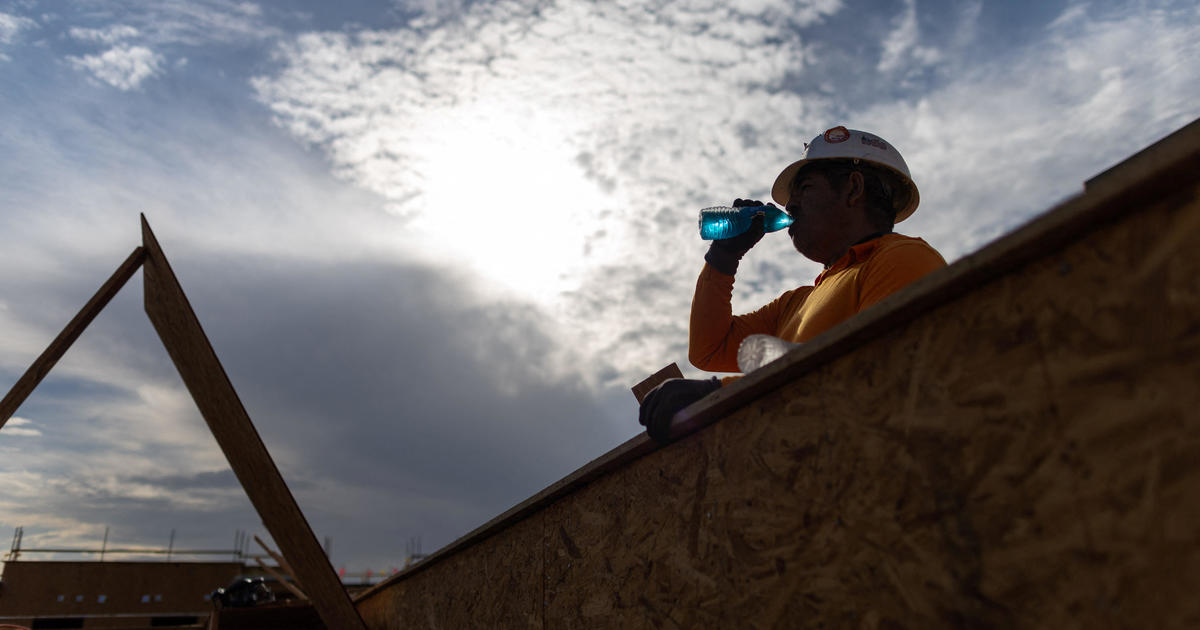Delta's latest mess highlights an industry weakness
The latest imbroglio at Delta Air Lines (DAL), which canceled more than 3,500 flights over the past few days, exposes a chink in the airline industry’s operations: Its vulnerability to broad disruptions, whether due to severe weather or computer crashes.
Critics are wondering why the industry -- the problem ranges beyond Delta -- isn’t better equipped to handle adversity, especially since it’s now flying high financially. There’s “an inability to manage large-scale disruption,” said airline consultant Bob Mann of R.W. Mann. “No airline today does this well.”
The most recent problem stems from an onslaught of fierce storms around Delta’s hub in Altanta, where its operations are centralized. Lightning strikes kept Delta’s ground crews off the runways, which prevented aircraft from unloading their passengers and thwarted departures and landings.
The flight cancellations cascaded through the Delta network, although rival carriers were largely unaffected because they aren’t headquartered in Atlanta. Delta said Monday that it was “near normal.”
“While we can’t control the weather, we understand the resulting recovery has not been ideal, and we apologize for that,” said Delta Chief Operating Officer Gil West last week amid tales of thousands of stranded passengers and overwhelmed company phone and online reservation services. He added: “Our employees are doing all they can, picking up extra flights, working overtime and going above and beyond for our customers on the phone and in gate areas.”
Indeed, the weather woes mark the third mess Delta has encountered in the past year. Last August, after a power outage knocked out the airline’s computer systems worldwide, 2,000 flights were canceled over three days. In January, another outage led to the scrubbing of 150 flights. After that mishap, CEO Edward Bastian said the situation was “not acceptable to the Delta family who prides itself on reliability and customer service.”
Delta is far from alone. Last July, Southwest Airlines (LUV) suffered a computer glitch that forced hundreds of delays and cancellations. Employees ended up issuing tickets and boarding passes by hand. The previous fall, a similar snafu knocked out about 800 Southwest flights. In 2015, computer foul-ups vexed United Continental (UAL) and American Airlines (AAL).
Last Friday, amid the storm-related cancellations, one Delta pilot, writing on the Airline Pilot Central blog, complained that it “has to be some kind of automation failure again ... It appears they are not even really trying to cover trips.” Another pilot groused about the airline’s program to buy back stock, which rewards shareholders, when the money would be better spent upgrading its technology and disaster prep.
Certainly, the industry in general has received plenty of criticism that its complex systems, bolted together over the decades, require major upgrades. After Delta’s August breakdown, Bob Edwards, a former chief information officer for United, told Insurance Journal that he didn’t “believe the flight ops, maintenance, passenger service systems, crew and dispatch applications are engineered with the level of redundancy needed.” In other words, in his view, the industry lacks adequate backup systems.
After the August outage, Delta’s Bastian said in a video to customers that the company had spent “hundreds of millions of dollars” on upgrades -- and $450 million was later earmarked for 2017. Airlines for America, the industry’s trade group, said carriers spend $1.5 billion monthly on “products and technologies to make flying better.” Whether that’s enough is open to debate.
“You’d think that a company as big and profitable as Delta would have a better disaster capacity,” said Phil Orlando, chief equity strategist for Federated Investors, who follows the industry. His wife was unable to change her Delta reservation amid the disruption because she couldn’t get through to the airline. “If Atlanta is knocked out from weather, why not have a facility in Kansas to take over?”
Such failures may keep recurring, if critics are right. “This is a cautionary tale,” consultant Mann said. Because of global warming, “the airline industry needs to plan to mitigate the impact of more and more high-energy storms.” The airlines, he said, should be prepared to better “engineer a restart of the operation, ideally within 24-36 hours.”
Delta’s most recent failure left a lot of unhappy people. Among the few who felt otherwise was Laura Begley Bloom, who collected $11,000 when she and her family, traveling from New York to Florida, elected to give up their seats in exchange for a reward and a later Delta flight.
Airlines have maximized profits in recent years by flying fewer but fuller flights, adding fees and, owing to a plunge in oil prices, paying less for fuel. Delta has seen its net income and stock price quadruple over the past five years through 2016.
Airlines are a famously boom-or-bust industry, but their current prosperity has even attracted a longtime skeptic, Warren Buffett, whose Berkshire Hathaway (BRK.B) has bought shares of Delta and the three other major carriers.
That said, airline stocks have dipped a bit in the past few months -- Delta is down nearly 9 percent in 2017 -- partly in reaction to projections of reduced earnings brought on by higher labor costs, a small hike in fuel prices and lower fares, to compete with aggressive pricing by discount carriers. Delta is slated to report its earnings on Wednesday, and analysts expect its net income to slide by 39 percent to $579 million, according to FactSet Research Systems.
Amid all the past week’s turmoil, Delta can claim one small victory: TripAdvisor, the travel planning and booking site, just came out with a ranking based on passenger reviews placing Delta as the top major North American airline. On the other hand, the American Consumer Satisfaction Index, which ranks products and services sold to U.S. consumers, consistently ranks airlines at near the bottom, judging Delta as the fifth worst.



